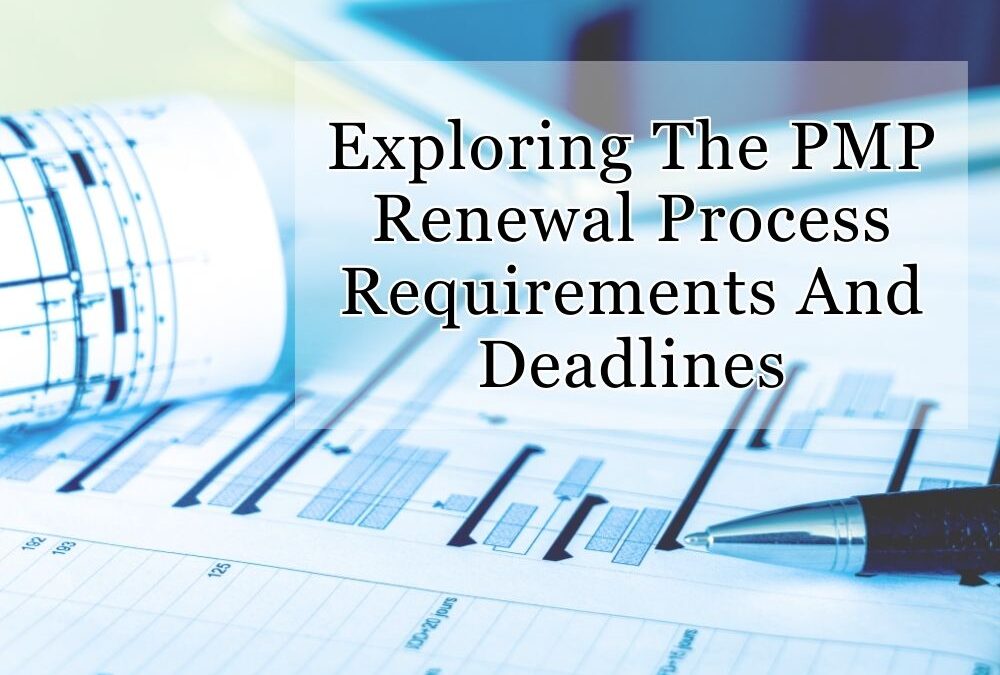Obtaining the Project Management Professional (PMP) certification from the Project Management Institute (PMI) is a significant achievement for project managers. However, it’s essential to recognize that the journey doesn’t end with certification. PMP holders need to maintain their credentials through periodic renewal to stay current with industry standards and best practices. In this article, we’ll delve into the PMP renewal process, outlining its requirements and deadlines.
The PMP renewal process is an integral aspect of maintaining the credibility and relevance of the Project Management Professional certification. By understanding the requirements and deadlines associated with renewal, professionals can proactively manage their certification status and continue to excel in their project management careers. Staying committed to ongoing learning and professional development ensures that PMP holders remain at the forefront of the evolving project management landscape.
Understanding PMP Certification Renewal
The PMP certification is valid for three years from the date of issuance. To maintain their certification status, PMP holders must engage in Continuing Certification Requirements (CCR) activities and accrue Professional Development Units (PDUs). PDUs serve as a measure of the time and effort spent on professional development activities related to project management.Requirements for PMP Renewal
To renew their PMP certification, professionals must fulfill certain requirements:- Accumulation of PDUs: PMP holders need to earn a specified number of PDUs within the three-year certification cycle. PMI requires a total of 60 PDUs for renewal, distributed across various categories:
- Education: PDUs obtained through formal education, such as attending courses, workshops, or seminars related to project management.
- Giving Back to the Profession: PDUs earned through activities that contribute to the project management profession, such as volunteering, mentoring, or writing articles.
- Working as a Professional: PDUs obtained by applying project management skills and knowledge in professional settings.
- Reporting PDUs: Professionals are responsible for documenting their PDUs through PMI’s online Continuing Certification Requirements System (CCRS). They should maintain records of activities, including dates, durations, and relevant documentation, to support their PDU claims.
- PMP Renewal Fee: Along with fulfilling PDU requirements, PMP holders must pay a renewal fee to PMI. The renewal fee varies for PMI members and non-members.
Deadlines for PMP Renewal
It’s crucial for PMP holders to be aware of the deadlines associated with certification renewal. PMI provides a grace period of one year after the certification expiration date, during which professionals can complete their renewal requirements without penalty. However, it’s advisable to renew well before the expiration date to avoid any disruptions in certification status.Here’s a breakdown of the deadlines involved in the PMP renewal process
Initial Certification Cycle: The three-year certification cycle begins from the date the PMP certification is granted. Professionals must complete their renewal requirements and submit the renewal fee within this period. Grace Period: Following the expiration of the certification cycle, PMI grants a grace period of one year. During this time, PMP holders can complete their renewal requirements and submit the renewal fee. However, the certification is considered expired during this period, and professionals cannot claim to hold an active PMP credential. Reinstatement: If professionals fail to renew their certification within the grace period, they enter a reinstatement period of one year. During this period, they can still reinstate their PMP certification by fulfilling the renewal requirements, including earning the required PDUs and paying the reinstatement fee. However, a late renewal fee may apply.Benefits of PMP Renewal
Maintaining PMP certification through timely renewal offers several benefits to project management professionals:- Demonstrates Commitment: Renewing the PMP certification showcases a professional’s ongoing commitment to continuous learning and development in project management.
- Sustains Relevance: By engaging in PDUs, professionals stay abreast of the latest trends, methodologies, and best practices in project management, ensuring their skills remain relevant in a dynamic industry.
- Career Advancement: Holding an active PMP certification enhances career opportunities, credibility, and earning potential in the project management field.
- Networking Opportunities: Participation in renewal activities, such as attending events or volunteering, fosters networking opportunities and community engagement within the project management profession.
The PMP renewal process is an integral aspect of maintaining the credibility and relevance of the Project Management Professional certification. By understanding the requirements and deadlines associated with renewal, professionals can proactively manage their certification status and continue to excel in their project management careers. Staying committed to ongoing learning and professional development ensures that PMP holders remain at the forefront of the evolving project management landscape.

